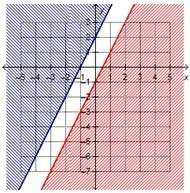
Mathematics, 31.12.2019 06:31 navyaseth620
For every integer k from 1 to 10, inclusive the kth term of a certain sequence is given by [(−1)^(k+1)]∗[1/2^(k)].
if t is the sum of the first 10 terms in the sequence, then t is:
a. greater than 2
b. between 1 and 2
c. between 1/2 and 1
d. between 1/4 and 1/2
e. less than 1/4

Answers: 1


Another question on Mathematics

Mathematics, 21.06.2019 14:30
The first five terms of a linear sequence are given below. 7 , 12 , 17, 22 , 27 , what is the next term of the sequence?
Answers: 1

Mathematics, 21.06.2019 14:30
In trapezoid efgh, m∠hef=(4x2+16)∘ and m∠gfe=(5x2+12)∘. find the value of x so that efgh is isosceles.
Answers: 1


You know the right answer?
For every integer k from 1 to 10, inclusive the kth term of a certain sequence is given by [(−1)^(k+...
Questions


Mathematics, 10.04.2020 00:18

Mathematics, 10.04.2020 00:18

Social Studies, 10.04.2020 00:18



Mathematics, 10.04.2020 00:19


Computers and Technology, 10.04.2020 00:19

Mathematics, 10.04.2020 00:19


Mathematics, 10.04.2020 00:19


English, 10.04.2020 00:19

History, 10.04.2020 00:19



English, 10.04.2020 00:19

Mathematics, 10.04.2020 00:19




